
Loss Of RBCs – Anemia
Alcohol tends to decrease the number of red blood cells (RBC) in the human body. The decrease in the number of red blood cells is called anemia. Red blood cells play a vital role in the human body, especially in the respiratory system. These little blood cells are the oxygen-carriers which help proper breathing and blood circulation. Drinking alcohol in small amounts is okay, but drinking too much alcohol results in a decreased number of red blood cells. This decrease, in turn, triggers a number of symptoms such as difficulty in breathing, light headedness, early fatigue, generalized weakness, and chest pain.
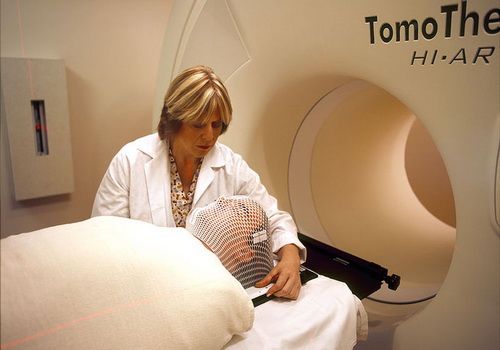
Alcohol Is A Carcinogen
Millions of people around the world consume alcohol every day, not knowing the consequences. Alcohol, when consumed, is converted into acetaldehyde by the human body. Acetaldehyde is a potent carcinogen which increases the risk of cancer. Alcohol usually causes cancer of the mouth, larynx (voice box), pharynx (throat), esophagus, breast, liver, stomach, and colorectal region. The risk of cancer is even higher in people who smoke tobacco, drink heavily, and have a family history of cancer. Scientists believe that acetaldehyde, when in excess, attacks the cell, affects it, and causes the cells to multiply to form abnormal cells in the affected area of the body. Quit alcohol and stay healthy.
- Important notification about information and brand names used in this slideshow!
- Photo courtesy of National Cancer Institute by Wikimedia Commons : commons.wikimedia.org/wiki/File:Patient_prepared_for_radiation_therapy.jpg
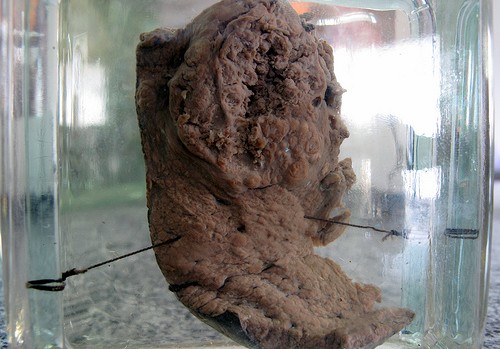
The Primary Target — Liver Cirrhosis
Alcohol is the biggest enemy of your liver. The liver has more than 500 different roles in the human body. Keeping the body clean from toxins is one of the most important functions of the liver. Heavy drinking results in a high level of acids and toxins in the body. In order to maintain homeostasis in the body, the liver has to work constantly which result in the irreparable damage to the liver. The worst part of the scenario is that drinking the alcohol over the government’s daily unit guidelines result in damage that you are totally unaware of until it gets serious.
- Important notification about information and brand names used in this slideshow!
- Photo courtesy of Albaraa Mehdar by Flickr : www.flickr.com/photos/albaraamehdar/5699415112/

Drinking Depresses Your Mind
Most people believe that alcohol makes them overcome grief, depression, or any major trauma in their life. But the scenario is the total opposite. Alcohol consumption actually degrades your central nervous system which, in turn, diminishes your senses and reflexes. Once your central nervous system is down, you lose the ability to think, plan, judge, solve problems, or react normally in different situations. A study 2010 study from New Zealand revealed that alcoholics' alcohol abuse is responsible for their depression in most cases. Don’t abuse alcohol if you’re feeling down. Instead, go somewhere and hang out with friends to fight depression.
- Important notification about information and brand names used in this slideshow!
- Photo courtesy of Sean by Flickr : www.flickr.com/photos/seanboston/435422688/

Dementia – A Hidden Gift From Alcohol
The word “dementia” has a Latin origin, where “de” means “apart” and “mentis” means “mind”. The human mind grows until a certain age and, later on, starts to shrink in size as well as in functionality. Alcohol increases the rate of shrinkage of the mind, making it difficult for the person to carry out his or her daily routine. Dementia is a mental disorder that prevents individuals from thinking properly. In other words, if you consume too much alcohol and develop this disease, you will not be able to solve your problems, make judgments, and you will lose your high-order abilities.
- Important notification about information and brand names used in this slideshow!
- Photo courtesy of Adrian Scottow by Flickr : www.flickr.com/photos/chodhound/8204311090/
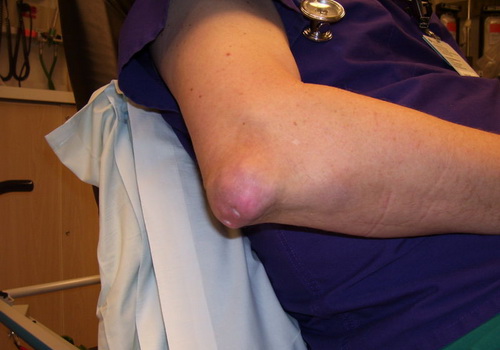
Gout – Painful Joints
Scientists believe that heavy alcohol consumption causes abnormal rises in uric acid levels in the body. Alcohol has no direct effect on uric acid; however, a study has shown that gout is more likely to occur in drinkers alcohol as compared to non-drinkers. The amount of protein that we consume is utilized by our body organs and muscles as a source of energy. But any extra protein that we consume is converted into uric acid. If the level of uric acid in the body crosses the threshold, these uric acid particles are converted into uric acid crystals which accumulate in the joints and cause pain. This increase in uric acid in the body in called gout.
- Important notification about information and brand names used in this slideshow!
- Photo courtesy of NickGorton by Wikimedia Commons : commons.wikimedia.org/wiki/File:GoutTophiElbow.JPG
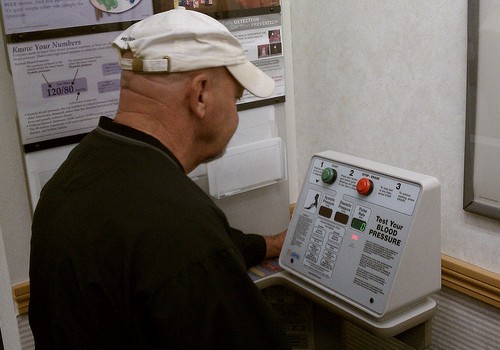
More Alcohol, More Blood Pressure
Heavy drinking or abusing alcohol, in particular, can cause your blood pressure to spike to a dangerous level. Alcohol in excess tends to disrupt the sympathetic nerves of the body. The sympathetic nervous system, in addition to other functions, controls the dilation and constriction of vessels. The sympathetic nervous system is activated in different situations such as fear, fight, flight, stress, and heavy drinking. When a person drinks more than his body can bear, the sympathetic nervous system constricts the vessels which result in high blood pressure. This is called secondary hypertension and can become chronic with time.
- Important notification about information and brand names used in this slideshow!
- Photo courtesy of loonyhiker by Flickr : www.flickr.com/photos/loonyhiker/5309822701/
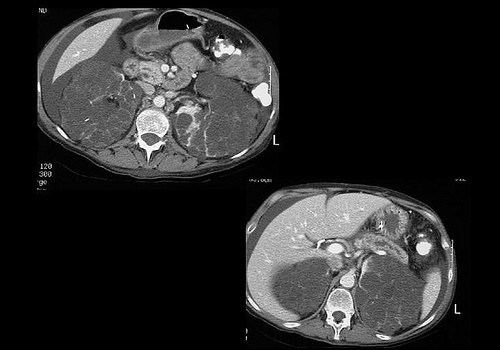
Drinking Inflames The Pancreas
In addition to inflammation of the internal lining of the stomach, alcohol can inflame the pancreas, causing pancreatitis. Alcohol consumption is known to cause gall stones which is the primary cause of pancreatitis. An inflamed pancreas causes various symptoms such as severe abdominal pain, nausea, vomiting, diarrhea, and bulky stools. The function of the pancreas is to secrete digestive enzymes. It also plays a role in the release of insulin. Once the pancreas is damaged, you will have digestive difficulties as well as a greater risk of developing diabetes. If you have a history of any gastrointestinal disease, keep a close eye on the amount of alcohol you consume.
- Important notification about information and brand names used in this slideshow!
- Photo courtesy of RadQuiz1 by Flickr : www.flickr.com/photos/radquiz/4277283896/
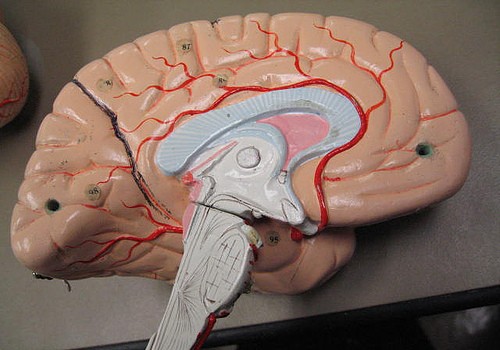
Heavy Drinking Eventually Leads To Neuropathy
Drinking alcohol occasionally and within limits does not have much of an adverse effect on the body; but if you start to abuse alcohol and drink more than the limits, it damages your whole body, including the nerves. Nerves carry impulses from the brain to the body and from the body back to the brain. Drinking initially suppresses the senses and slows down motor reflexes. However, for people who drink alcohol very often, it starts to damage the nerves resulting in awkward sensations such as irritation painful pin-like sensations on different parts of the body. It also weakens your muscles which can result in erectile dysfunction, digestions, incontinence, and other problems. The weakening of muscles due to alcohol is known as "alcohol neuropathy".
- Important notification about information and brand names used in this slideshow!
- Photo courtesy of GreenFlames09 by Flickr : www.flickr.com/photos/greenflames09/100782021/

Heavy Drinkers Are Prone To Heart Attack
Heavy drinking, especially binge drinking, has a direct effect on blood platelets. Platelets are the blood cells that help to clot blood. Alcohol affects the platelets and destroys them which makes them stick together with each other within a blood vessel. Once they stick with each other, they form a kind of a clump which can block the blood vessel. This is known as atherosclerosis, which is the primary cause of myocardial infarction (heart attack). Alcohol can also weaken cardiac muscles. When these muscles become weak, the heart loses the tendency to pump properly which causes cardiomyopathy. Alcohol can also cause an abnormal heart rhythm. To keep yourself away from cardiovascular disorders, it’s a good idea to avoid from alcohol.
- Important notification about information and brand names used in this slideshow!
- Photo courtesy of United States Navy by Wikimedia Commons : commons.wikimedia.org/wiki/File:US_Navy_040421-N-8090G-001_Hospital_Corpsman_3rd_Class_Flowers_administers_chest_compressions_to_a_simulated_cardiac_arrest_victim.jpg





















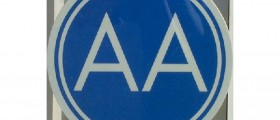
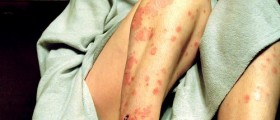


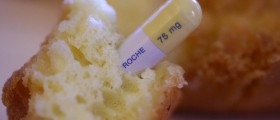

Your thoughts on this
Loading...